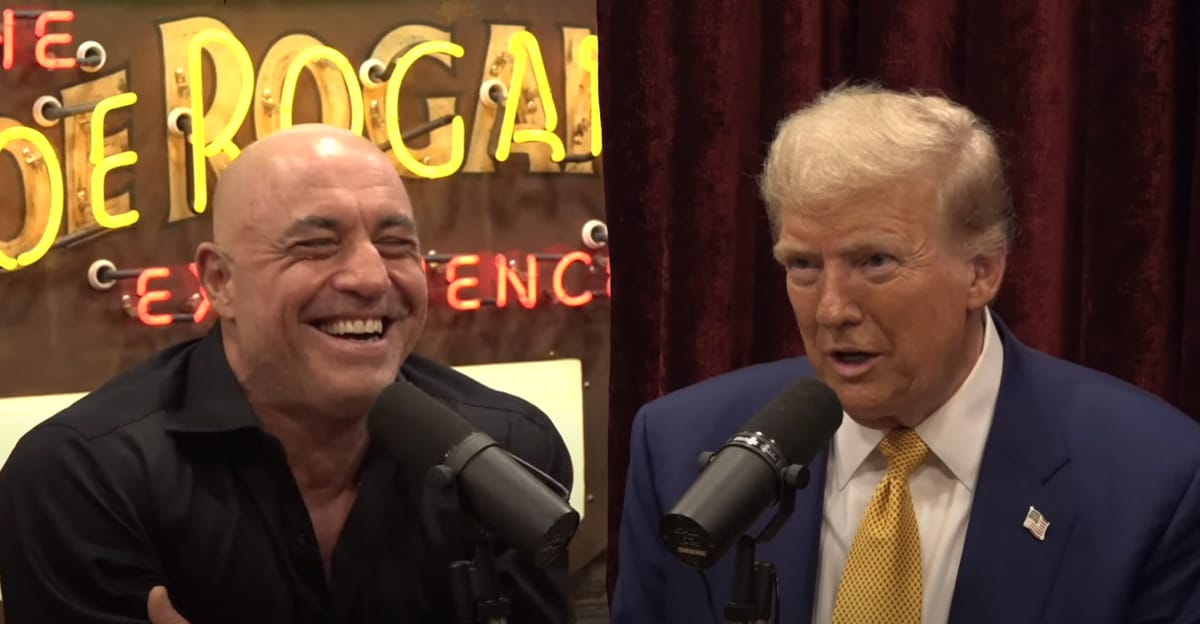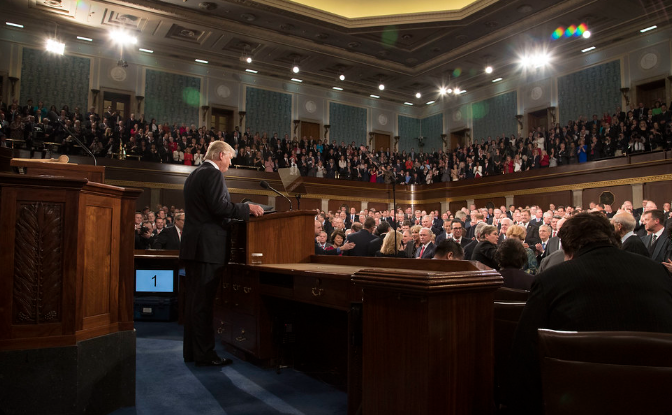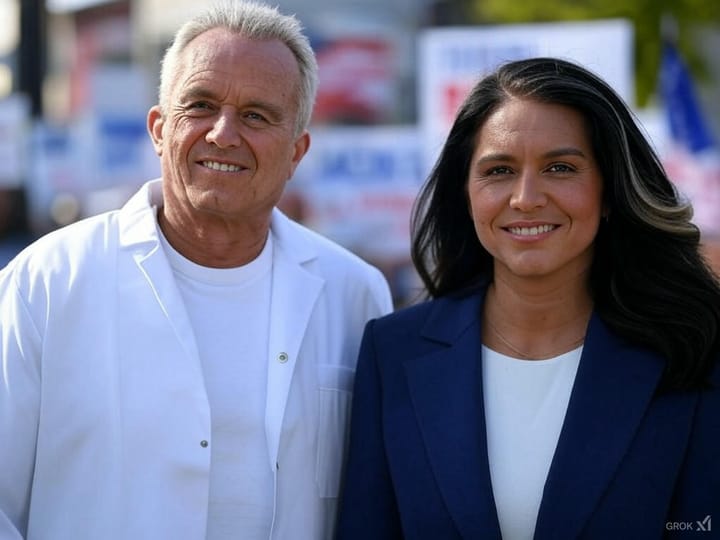Trump on Rogan: Did YouTube Shadow Ban the Viral Interview?
Did YouTube shadow ban Trump’s viral Joe Rogan interview? With over 33 million views, it’s not trending or easy to find, fueling Big Tech censorship claims.

On October 25th, 2024, the Joe Rogan Experience episode #2219 featured former President Donald Trump in a wide-ranging discussion on pivotal issues—spanning foreign policy, election integrity, public health, and cultural dynamics. Garnering over 33 million views, the episode rapidly gained traction, yet conspicuously failed to appear on YouTube's trending list and remains challenging to locate via the platform's search function. This has led many to question whether YouTube is intentionally suppressing the content, suggesting a continued pattern of Big Tech censorship.
Media Censorship and Big Tech Bias
The most striking aspect of this interview lies not solely in its content, but in its aftermath. Despite surpassing 33 million views, the episode is conspicuously absent from YouTube’s trending page, and anecdotal reports suggest that searching for it yields inadequate results. This has fueled speculation regarding the role of Big Tech in actively diminishing visibility. Joe Rogan, echoing the frustrations of many, remarked, “It’s the Internet. It’s because the Internet is giving people information that they're not getting from anywhere else.” Trump added, “We have people that are really bad people that I really think want to make this country unsuccessful.” Both Rogan and Trump addressed their shared perception of mainstream media and tech giants manipulating information to shape political narratives. Such concerns are amplified by the apparent difficulty in locating this viral interview—a phenomenon interpreted by many conservatives as further evidence of systemic suppression by dominant tech entities.
Trump's Foreign Policy and Leadership
The conversation underscored Trump's standing as a pivotal figure in American political discourse, particularly in matters of foreign policy. Trump asserted that the ongoing conflict between Russia and Ukraine would not have unfolded under his presidency, citing his personal rapport with leaders such as Vladimir Putin and Xi Jinping as crucial to maintaining stability. “I would meet with Putin and I would meet with Zelensky. And I know exactly what I’d say to each one of them,” Trump asserted, highlighting his approach of direct, decisive negotiation—a stark contrast to what he views as the current administration’s ineffective diplomacy.
Trump also criticized the current administration’s handling of the Middle East and reiterated his unwavering support for Israel, reflecting traditional conservative priorities. His advocacy for strength in leadership and nuclear non-proliferation aligns with a broader Republican ethos of "peace through strength," positioning the United States as the cornerstone of global security. “The current administration just isn’t doing enough,” Trump contended, emphasizing that strong leadership is fundamental to both national and international stability.
Election Integrity and Border Security
Election integrity was a prominent theme throughout the interview. Trump emphasized the need for voter identification laws and the implementation of paper ballots to safeguard electoral credibility. “We have to have fair elections,” Trump declared, pointing to vulnerabilities associated with mail-in ballots and electronic voting systems—vulnerabilities he argued were exploited during the 2020 election. He lamented, “Judges didn’t have what it took to turn over an election,” suggesting that systemic weaknesses and a lack of judicial fortitude impeded the necessary scrutiny of electoral outcomes. For many of Trump’s supporters, these points are central to preserving the foundational tenets of American democracy.
On immigration, Trump highlighted the adverse effects of illegal immigration, including drug and human trafficking, as well as the strain placed on public resources. “Hundreds of thousands of major criminals. Tougher and worse than anybody we have,” he warned, underscoring the critical need for fortified border security. In response to Rogan’s inquiries about strategy, Trump was emphatic: “We need to take a strong stance. No nonsense. We have to protect our citizens.” The emphasis on stringent immigration control and border enforcement remains a core tenet of conservative policy, aimed at ensuring national security and economic stability.
Public Health, RFK Jr., and Cultural Issues
The interview also ventured into the domain of public health, with Trump suggesting a potential collaboration with Robert F. Kennedy Jr. on health-related initiatives. This proposal resonated with Rogan, a well-known critic of big pharmaceutical companies. Trump’s willingness to confront issues such as harmful chemicals in the food supply reflects a broader commitment to health reform aimed at empowering personal choice and reducing bureaucratic overreach. “Make America Healthy Again” emerged as a potential rallying cry, likely to resonate with voters wary of corporate influence on public health. “RFK is going to be very… I think he’s a great guy… I owe it to the country,” Trump noted, indicating a shared mission to enhance public wellbeing.
Rogan and Trump also delved into the cultural sphere, discussing contentious topics such as transgender athletes in women’s sports and the broader “woke” movement. Rogan opined that young people are increasingly “rejecting a lot of this woke nonsense,” a sentiment Trump readily endorsed. “It’s a big, there’s a big difference now. Even in just a couple of years,” Trump observed, implying that the cultural pendulum is swinging back toward what many perceive as common-sense values. This discussion encapsulated a broader conservative rejection of what is viewed as the radical imposition of social ideologies that undermine traditional norms.
The Joe Rogan Experience #2219 offered Donald Trump a platform to articulate his vision for America—a vision centered on themes of strong leadership, electoral integrity, border security, economic nationalism, and cultural conservatism. Despite the interview's overwhelming popularity, the apparent suppression by YouTube raises critical questions regarding the impartiality of Big Tech platforms and their influence on public discourse.
The reluctance of major platforms to amplify Trump’s message, even amid widespread interest, serves as a poignant reminder of the challenges faced by conservatives in securing fair representation in the public sphere. For many, the suppression of this episode epitomizes the broader struggle for freedom of speech and the right to access uncensored information in an increasingly polarized digital landscape.
The truth is out there—if only Big Tech would let people find it.





Comments ()